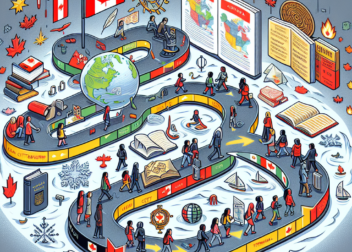Introduction
As Canada has evolved into a globally recognized immigration destination, there have been considerable changes and reformations in the immigration policies. This article will focus on how these changes can specifically impact the Temporary Resident Visa (TRV) rules and applicants.
Definition of a Temporary Resident Visa (TRV)
Before delving into the policy changes, it is crucial to understand what a Temporary Resident Visa (TRV) is. A TRV is an official document issued by a Canadian Consular office that allows an individual to legally enter Canada for a temporary period, which can vary from a few days to a few years. It is mostly issued for work (temporary workers), study (students), or tourism (visitors) purposes.
The Impact of Policy Changes on TRV
Immigration policies are an integral part of a nation’s immigration system. These policies are not constant; they evolve as per the political, economic, and social environments. Policy changes can have a profound impact on Temporary Resident Visas, impacting various aspects like eligibility, application processing, duration of stay, and more. Here’s how:
- Eligibility Criteria: Changes in policies might redefine eligibility criteria for TRVs. For instance, changes might impose stricter language proficiency requirements which could affect your application if you’re a non-native English or French speaker.
- Application Processing: Immigration policy changes can affect processing times for the TRV applications. They could either speed up the processing or halt it, depending on the directives included in the policy changes.
- Duration of Stay: Introduced policy reforms might modify the duration of your stay in Canada. For example, a policy aimed at reducing temporary visa durations may limit your stay in the country.
- Work and Study conditions: Policies could impose new restrictions or regulations on work and study conditions. For instance, a policy change might not allow you to work part-time while studying or might increase the number of hours you’re allowed to work.
Recent Canadian Policy Changes That Impacted TRVs
Let’s now look at some recent Canadian policy changes that have left a significant impact on Temporary Resident Visas:
- COVID-19 and Online Study: The global pandemic led to major changes in Canadian immigration policies, particularly affecting international students. Recognizing the viability of online education during the pandemic, Canada allowed students with a valid study permit or TRV to count time spent on online studies while abroad towards their eligibility for a Post-Graduation Work Permit. This policy change has proven beneficial for many international students.
- Work Experience for Temporary Foreign Workers: Another policy change recognized Canadian work experience accumulated by temporary work permit holders, even if they worked in a different occupation than the one stated in their Express Entry profile. This gave them an additional advantage in improving their ranking within the Express Entry system, thus aiding their transition from temporary to permanent residency.
Conclusion
Overall, several factors can lead to changes in the immigration policies that might affect your Temporary Resident Visa. As such, it is crucial to stay abreast of the ongoing changes and revisions. Working with an experienced immigration consultant can save you from possible pitfalls and help align your immigration goals with the current policies.


